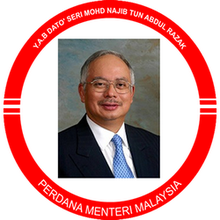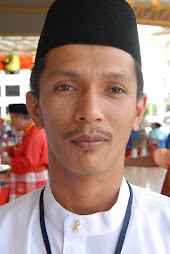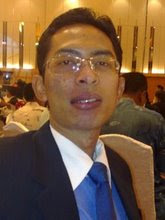

BN Youth Lab: How to tackle non-partisan youth
July 25, 2010
KUALA LUMPUR, July 25 — It is estimated that seven million young voters will vote in the next or 13th General Election and their support will determine the outcome.
However, a recent survey conducted by Barisan Nasional (BN) Youth Lab provided some insights into the thinking of young voters when it comes to national politics. Most of them are believed to be adopting a more non-partisan stand.
As the majority of youths are not party supporters, the survey showed that three in five Malaysian youths were undecided with their votes, or 62 per cent said they were still ‘sitting on the fence’, with regard to BN and Pakatan Rakyat.
The details of the survey, together with policy proposals, were presented by BN Youth chief Khairy Jamaluddin and his BN Youth Lab team to BN chairman Datuk Seri Najib Tun Razak last week, and will be made available to the public at a ‘town hall’ meeting with the prime minister, scheduled on Aug 20.
A series of surveys were conducted nationwide between March and June, by the BN Youth Lab programme, including through the social media, to detect relevant issues and problems affecting Malaysian youths today. The major concerns voiced by the interviewees were employment, education, rising cost of living and public transportation.
“They will vote for whoever they believe is better, in the next general election,” said the findings, which was conducted by a special research group formed to assist the ruling coalition in formulating appropriate policies pertaining to the younger generation.
The BN Youth Lab findings were very much in tandem with the current political trend highlighted by various political observers and analysts, said media studies senior lecturer at Universiti Malaya, Dr Abu Hassan Hasbullah.
“The young voters now are more liberal and constructive and they do not weigh an issue based on political ideology. They can just switch their support or react to a situation any time,” he said.
He added that the young generation no longer held on to a politician’s word or promise, but would instead, evaluate how the parties concerned would handle various issues.
However, the director of Parti Gerakan think-tank, SEDAR, Khaw Veon Szu, believes that most of the youths were still very much inclined towards the opposition, even taking the percentage of the undecided, according to BN Youth Lab, standing at 60 per cent.
He said that voters kept changing, from month to month, adding that the general consensus for the ‘young and the restless’ was that they were in favour of the “other side”,” in reference to the Opposition.
Khaw said the Opposition had some “fixed deposit” in the Chinese community and this explained why they had gone all out to register new and young voters because they viewed them as another round of “fixed deposit”.
One of the sectors that can bring immediate impact and big results that would strike deep into the mind and heart of the young voters is the revamping of the education policy.
However, some political observers and party members pointed out that what BN needed now were solutions to solve concerns raised by these groups — not another survey to find out the problems faced by the young.
“You don’t need to conduct a study or survey to do that. As a youth, I can tell you what the youngsters want — jobs, security, quality of life and good governance,” a youth leader from a BN component party said.
However, Khaw said any type of survey was helpful and important to BN as it needed as much data as possible.
This is exactly what MIC Youth is doing, following the findings of various surveys. One of the strategies it adopted is to have more young leaders leading the movement at branch and divisional levels.
MIC Youth chief T. Mohan said that on Aug 21, 50 new youth branches with young leaders would be established, apart from registering new member as voters when they reached 21.
“Prior to this, we needed to wait until somebody relinquished his post or passed away. But now, the movement is seeing youth branch chairmen in their 20s and 30s,” he said.
DAPSY chief Anthony Loke explained that the younger voters’ greater inclination towards PR was largely due to the ‘push’ factor from the BN and not the ‘pull’ factor by the opposition pact or PR.
“We still need to work hard to attract them, by showing that we have better ideas, and can be a better government. The battle for young voters is still wide open. It’s still an open market. The young voters will vote based on whoever can show that they are doing better,” he said.
Therefore, Loke said, the Opposition was focusing on two approaches — more aggression in registering new voters, including door-to-door visits, and telling them that by being a voter, it would empower them to make a decision about what they viewed as important.
UCSI University political analyst Ong Kian Ming said there had been no concerted effort by BN youth as a coalition to engage the youths on any concrete policy related to them.
“Taking the scholarship issue as an example, we don’t see any concerted effort to resolve the issue until the announcement by the prime minister,” he said.
On July 10, Prime Minister Datuk Seri Najib Razak announced that all students obtaining 9A+ and more for their Sijil Pelajaran Malaysia examination would receive Public Service Department (JPA) scholarships for either overseas or local universities.
Ong said, while the opposition seemed to be more appealing to the younger voters, it (opposition) could not take that for granted as the previous election result did show some minor increase in youth voters towards BN.
“In the 1999 and 2004 general elections, the youth voting pattern showed there was declining youth support towards BN, but in 2008, there was a slight increase for BN, particularly from the post-Reformasi generation aged between 21 and 30,” he said.
In terms of leadership, he said, there were several leaders on both sides of the political divide who connected well with the youth. — Bernama
BN Youth Lab disproves youth apathy
By Erna Mahyuni
KUALA LUMPUR: Panned before it even got off the ground, the BN Youth Lab has been called a publicity effort as opposed to a serious endeavour to engage the nation’s youth.
Umno Youth chief Khairy Jamaluddin has been a prime mover behind the endeavour, fuelling speculation that BN Youth Lab is merely a vehicle to help his political relevance.
To be fair, Khairy has certainly leveraged on the public interest in the BN Youth Lab’s findings. But what politician could resist an opportunity to be seen as relevant to the younger set, who proved key to BN’s defeat in the 2008 general election?
For the youth, by the youth
What is BN Youth Lab all about? Basically it is Umno Youth’s attempts to engage Malaysian youth on key issues that interest them. Prime Minister Najib Tun Razak had mooted its formation in a meeting with key Umno Youth members.
Kicking off the effort was a telephone survey involving a sample of 1,000 respondents, youth were asked about what mattered to them.
The results were enlightening. Youth shared concerns about issues that embraced a broad spectrum that included the economy, media freedoms, education and the minimum wage.
A key question asked was whether the respondents would vote in the coming elections, and 75% of the respondents, many of whom would be first-time voters, emphatically said yes.
BN Youth Lab then progressed beyond a mere survey to engaging focus groups and then setting up a ‘lab’ that involved a cross-section of the target demographic. The end result? A report that compiled a list of recommendations made by the youth to be submitted to the prime minister.
Media commission ‘to be addressed later’
A month before the report was made public, Khairy had a personal audience with the prime minister to discuss the recommendations.
“He (the PM) was happy with the recommendations,” Khairy told a private audience with BN Youth Lab members.
However, a contentious portion of the report, pertaining to a proposed media commission was left out of the public report.
Khairy said that though the PM was amenable to the media practicing self-regulation as opposed to the current Home and Information Ministries’ involvement, it was a matter he felt needed “further thought” and revisited in depth on its own.
Following the encouraging response to the BN Youth Lab, the Youth and Sports Ministry is due to sponsor another youth lab. According to Khairy, this lab would likely build from the BN Youth Lab report as the foundation.
Moderate or cowardly?
A bit of disclosure here: this writer was a participating member of the Youth Lab sessions that led up to the final report. I agreed to joining on tacit knowledge that I would report on my experiences and assurances that the members were strictly non-partisan.
From observations, the members of the lab sessions were predominantly middle-class urbanites. What they also had in common was a bias towards leaning somewhat towards the centre, which could explain why the recommendations were generally tame.
On the subject of the ISA, instead of calling for its outright abolition, respondents instead called for key revisions to its terms as well as for greater transparency.
Among the ISA recommendations made were:
1. A maximum or cap to the detention period as opposed to two-year renewals.
2. Compulsory financial assistance for ISA detainees’ dependents
3. Amending Section 8 where the Home Minister’s approval would then be needed for all detentions, and not just for those exceeding one year
4. The police would need to inform the Home Ministry of an ISA detention within 14 days. Failure to do so would earn the detainee the right to immediate release.
Other recommendations included support for a minimum wage of at least RM1,000, better child care facilities, and monetary incentives to companies that employed more than one race.
The “bravest” recommendation perhaps was a call for the Universities and University Colleges Act to be amended to allow university students to participate and hold ranks in political parties.
From my own experience in the Lab, we were constantly reminded to suggest concrete, practicable measures as opposed to mere ideas. The limited time given, four afternoons on weekends, also restricted the depth particular issues could be explored.
Yet some allowance had to be made for the composition of the labs members. These were not scholars but for the most part civilians not vested in either civil service.
To their credit, BN Youth had a mostly hands-off approach to the lab and served as facilitators without attempting to influence the issues or directions conversations veered towards.
The aftermath
Mok Han Kit, another BN Youth Lab participant, admitted that he was initially skeptical about the whole process.
“I am skeptical anything will actually come out of this but I’m not totally discounting the possibility,” he said.
His fellow participant, Jillian Lau, considered the proceedings “eye opening”.
“It showed me that the ‘other side’ (government-affiliated) actually did care about what was happening in the country,” she said.
At the preview meeting for the BN Youth Lab members, Khairy was asked what reassurances there would be the measures proposed would be implemented.
The Umno Youth chief said that there would be tracking methods put in place to monitor the progress of the recommendations. Details on the exact methods were still sketchy at press time but the members were assured they would be kept in the loop.
What is apparent is that BN seems to be making headway in the battle for young minds. What the opposition currently lacks are convincing youth leaders. It is overly dependent on NGOs to engage this key demographic.
The jury is still out on whether BN Youth Lab is more than a publicity exercise. What is clear is that the youth carry not just the hopes of the nation, but also the future of the political landscape.
Forum Gaji Minimum
October 5, 2010 in Uncategorized | Leave a comment
Pemuda Barisan Nasional (“Pemuda BN”) bersama-sama dengan Kongres Kesatuan Sekerja Malaysia (MTUC) akan menganjurkan Forum Gaji Minimum pada hari Rabu, 13 Oktober 2010 ini bertempat di Hotel Putra, Kuala Lumpur bermula dari jam 8:30 pagi hingga 1:30 petang.
Forum ini adalah lanjutan daripada sesi perbincangan bersama wakil daripada dua kesatuan sekerja terbesar negara iaitu Kongres Kesatuan Sekerja Malaysia (MTUC) serta Kongres Kesatuan Pekerja-Pekerja Dalam Perkhidmatan Awam (CEUPACS) pada 24 Ogos lalu serta maklum balas yang diterima melalui Makmal Pemuda BN.
Isu gaji minimum adalah suatu yang amat penting bagi seluruh golongan pekerja di Malaysia terutama bagi membantu mereka menangani kos sara hidup dan inflasi yang meningkat disamping memastikan bahawa kebajikan pekerja di negara ini terbela dengan kadar gaji yang setimpal. Keperluan ini dilihat semakin meruncing apabila 34 peratus daripada kumpulan pekerja di Malaysia berpendapatan kurang daripada RM700 sebulan, iaitu lebih rendah daripada Pendapatan Garis Kemiskinan Semenanjung (PGK) – RM720 sebulan. Malahan berdasarkan kajian Bank Dunia, secara puratanya gaji para pekerja di Malaysia hanya meningkat pada kadar 2.6 peratus dalam tempoh sepuluh tahun yang lalu yakni lebih rendah jika dibandingkan dengan purata kenaikan gaji dunia iaitu pada tahap 3.2 peratus, sebagaimana laporan Pejabat Buruh Antarabangsa.
Malahan isu ini menjadi semakin relevan unjuran daripada usaha Kerajaan mentransformasi halatuju serta merancakkan aktiviti ekonomi negara ke arah ekonomi berpendapatan tinggi dengan sasaran pendapatan kapita rakyat di tahap USD15,000 atau RM49,500 setahun. Ini kerana adalah menjadi kebimbangan Pemuda BN dan MTUC akan risiko pelebaran jurang pendapatan antara yang berpendapatan tinggi dan rendah sekiranya kita masih lagi membiarkan kuasa pasaran menentukan tahap gaji terendah pekerja.
Sebagaimana dijelaskan sebelum ini, objektif forum ini adalah bagi membincang dan menghalusi segala pandangan, cadangan serta permasalahan berkaitan dengan pelaksanaan gaji minimum sebelum menghantar segala rumusan terbabit kepada Kerajaan.
Sehubungan itu, pihak Pemuda BN dan juga MTUC dengan ini menjemput orang ramai untuk menghadiri forum tersebut dan turut serta memberi pandangan serta buah fikiran berhubung dengan topik gaji minimum di Malaysia.
BN Youth Lab: Creating a contact point between BN and Malaysian youths
Friday, 27 August 2010 16:59 Adrian Phung
E-mail Print PDF
bnyl270810With the purpose of wanting to understand the aspirations, problems and suggestions of young people and generating government policies that suit their needs, the Barisan National (BN) Youth was assigned by the Prime Minister Datuk Seri Najib Tun Razak on 17 February 2010 to operate a similar laboratory in which Performance Management and Implementation Unit (PEMANDU) created the National Key Result Areas (NKRA).
"However, the difference between this laboratory and the laboratory handle by PEMANDU was the main focus of this BN Youth laboratory was on youth itself with the objective of finding the contact point between the BN government with the Malaysian youths," explained BN Youth chief Khairy Jamaluddin during the BN Youth Lab town hall meeting which was held earlier today at the Kuala Lumpur City Hall building.
During the town hall meeting with the attendance of 400 people, Khairy revealed that a random survey was conducted on 1,000 young respondents and the survey was mainly based a few criteria that include age, race, gender, geographic location so that the results that were obtained from the survey could represent the country's youth demographic patterns.
"Besides engaging in the methodology of survey, the BN Youth Lab also engaged in the methodology of a focus group bkhairy270810efore the establishment of a ‘lab' that involved a cross-section of the target demographic with the results published in a report, consisting of a list of recommendations made by the youth that will be tabled to the prime minister," said Khairy.
"Some of the interesting findings that we obtained from the youths nationwide include not calling for the outright abolition of the Internal Security Act (ISA), respondents had called for the government to make some amendments to it," claimed Khairy.
"The amendments include the setting of a maximum or limit to the detention period as opposed to two-year renewals, compulsory financial assistance for ISA detainees' dependents, approval of the Home Minister's would be needed for all detentions and not just for those exceeding one year, the police would need to inform the Home Ministry of an ISA detention within 14 days, failure to do would allow the detainee the right of immediate release," revealed Khairy who added that a Detention Advisory Board was to be set up so that it would have the authority to bring cases to court if there was any conflict with the Home Ministry.
Apart from ISA amendments, they also called upon that the Universities and University Colleges Act (UUCA) to be amended because since its introduction in 1971, it has restrained the undergraduates' freedom in joining any political party or making any statements that can be construed as politics.
"Some of the amendments that the youths were demanding on Section 15 of this act were giving the university students the permission to be actively involved in politics by becoming a member or even holding a position in any of the country's political party," said Khairy.
"Meanwhile, another amendments that these youths had asked for was the permission and freedom to make any statements even if that statement was a political statement," added Khairy.
Among the other important recommendations listed in the report were the support for a minimum wage of at least RM1,000, better child care facilities, and monetary incentives to companies that employed more than one race.
Globalisation and the free movement of people — M. Bakri Musa
November 22, 2010
NOV 22 — Earlier, I alluded to the fact that unlike imperialism where there was mobility of labour, today’s globalisation does not have the comparable freedom of movement of people. Unlike goods, services and capital that can slip in and out of borders readily, people still have to go through tedious immigration controls. Leaders like Tun Dr Mahathir Mohamad challenged advocates of globalisation to also equally liberalise immigration, that is, to make the movement of people as free as that of ideas and capital.
Much as I agree with this ideal, it is unlikely to happen, given present-day realities. Western countries that are today’s champions of globalisation have elaborate social safety nets for their citizens. Indeed the greatest asset one can have at birth is not one’s set of genes, rather one’s birthplace. There are significant benefits just by being born as Americans or Western Europeans regardless whether you are contributing or not. These include free education and other generous entitlements. No wonder these citizens want to restrict immigration; it is a manifestation of the classic “rent seeking” economic behaviour.
Despite the various immigration restrictions, there is nonetheless considerable mobility of workers today, but only for those at the two extremes: the highly talented and the unskilled. Someone with a Wharton MBA or Caltech PhD will have no difficulty securing a permanent residency status in America or elsewhere; so too talented artists and athletes. American college recruiters scour African villages for potential basketball players and track runners. Cuba and the Dominican Republic have little chance of retaining their marquee baseball players; they are sucked up into America.
These highly desirable individuals do not have to line up at the nearby American embassy for their visas. Their coaches or corporate lawyers would do that for them. For these fortunate souls the market for their talent is truly global, oblivious of national boundaries.
At the other extreme — the unskilled and the desperate — for them national borders too are irrelevant. Every day thousands of Mexicans slip through the porous southern border of America. Immigrants from Africa and Asia smuggle themselves in by a variety of ingenious and dangerous ways. Every so often a rusty trawler full of desperate Chinese or Indians would beach upon American shores.
The challenge for Third World countries today in the face of globalization is how to retain their highly skilled and talented citizens so they will not succumb to the lures of the developed world. In the past, appeals to nationalism and patriotism would keep them at home (at least some of them), but today such calls would fall on deaf ears.
The only way to retain them is to give them their dues. This means paying the going global rates, not puny local salaries. Some countries like Singapore are aware of this and are appropriately rewarding their talented citizens with world-class pay.
Many others, Malaysia included, have yet to learn this elementary lesson and are still in the mode of appealing to emotions. Sometimes that works, but most often not. There is a limit to what people would sacrifice.
Leaders like Dr Mahathir who advocate the free movement of labour have to be careful for what they wish, for if it were to become true, the losers would be Third World countries like Malaysia. Imagine if anyone can enter America and Britain; what chance would Malaysia then have in retaining her brightest and talented citizens? They would all emigrate and Malaysia would be left with the losers, and the unskilled illiterate immigrants from Indonesia and Bangladesh.
With the spread of ideas, there would inevitably come a convergence or agreement on what is valued and what is not. That is, the emergence of a global standard or yardstick. I do not refer to the value system or the sense of aesthetic, but more to mundane issues like quality of medical care and education.
When Malaysians read about new advances in heart surgery elsewhere, they would not be satisfied if their local doctors were to stick with the old remedies. Malaysians too want the best for themselves and their loved ones. If they cannot get that at home they would go abroad. It is not just the King who goes to Singapore to get his pacemaker; every Malaysian too would sacrifice to get the best.
The only way for Malaysia to stop the exodus of local patients would be to train local experts to meet international standards. When Petronas was building its Twin Towers, it searched the world for the best architects and engineers; there were no nationalistic considerations given for such a high profile project.
The growth of private colleges in Malaysia is due to the widespread perception that local public institutions are not doing a good job. How do ordinary Malaysians know this? Well, they read about the achievements of leading universities elsewhere and then draw the conclusions.
Further, when local parents see graduates of foreign universities and local private colleges being eagerly sought after and paid more by employers, these parents would save hard to send their children to such institutions.
Singapore has very few private colleges because its public ones are so superior; private colleges could not compete easily. Only the prestigious foreign ones like Johns Hopkins, INSEAD, and the University of Chicago could compete in such a competitive environment. East London University need not bother entering; it would not survive the rigorous competition.
Medical care and education are only two examples. I can cite many more. Malaysians, having flown in the best airlines and stayed at the best hotels, would not patronise Malaysia Airways and local hotels if they do not have comparable levels of services. Just being a Malaysian establishment no longer sells. Like it or not, we have to adopt international norms and standards because our people demand them. — bakrimusa.com
* This is the personal opinion of the writer or publication. The Malaysian Insider does not endorse the view unless specified.































































No comments:
Post a Comment